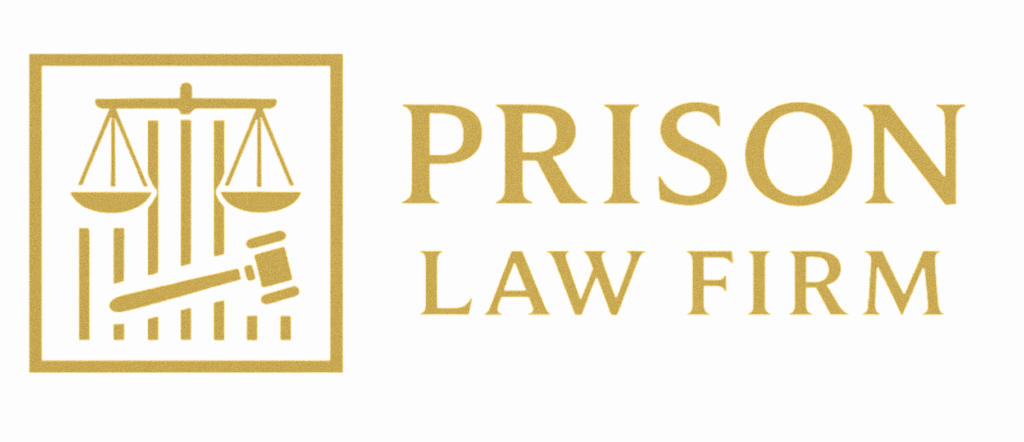This guide explains common claim types, the strict rules that apply to lawsuits from federal custody, and practical tips to avoid dismissal. It is general information, not legal advice.
- Exhaustion is mandatory: You almost always must use the BOP Administrative Remedy Program before filing suit (28 C.F.R. Part 542; Porter v. Nussle).
- Damages limits: Money damages for purely emotional harm are restricted without a physical injury or sexual assault showing (42 U.S.C. § 1997e(e)).
- Choose the right vehicle: Some claims go under the FTCA (negligence), some require Bivens (constitutional claims—now narrowly available), others need injunctive relief, habeas, RFRA, or the Rehabilitation Act.
First: The Gatekeepers — PLRA & BOP Remedies
The Prison Litigation Reform Act (PLRA) requires prisoners to fully exhaust available administrative remedies before filing most federal lawsuits about “prison life.” For federal prisoners, that means completing the BOP’s BP-8, BP-9, BP-10, and BP-11 process under 28 C.F.R. Part 542, unless a narrow exception applies. Courts routinely dismiss cases for failing to complete each step on time.
PLRA also restricts recovery for purely emotional or mental injuries without a showing of physical injury (or a qualifying sexual assault), though injunctive/declaratory relief may still be available.
What You Can Sue the BOP (or Officers) For
1) Federal Tort Claims Act (FTCA) — Negligence by Federal Employees
If BOP staff negligently cause injury (for example, medical malpractice or unsafe conditions), you may bring an FTCA claim—against the United States—after filing a timely administrative claim (Standard Form 95) and waiting for a written denial or six months to pass. FTCA has exceptions and strict deadlines, so getting it right up front matters.
2) Constitutional Claims (Bivens) — Suing Individual Federal Officers
Some constitutional violations (e.g., deliberate indifference to serious medical needs under the Eighth Amendment) have historically been brought under Bivens. But the Supreme Court has sharply limited expanding Bivens into “new contexts,” and courts now reject many Bivens claims that differ even slightly from past precedents. Do not assume a constitutional damages claim will be allowed; consider injunctive routes, FTCA, or other statutes as well.
3) Injunctive & Declaratory Relief (Policy & Conditions)
Even where damages are limited, courts can order forward-looking relief (e.g., access to care, accommodation, program placement, or to stop an unlawful policy). These claims still require PLRA exhaustion and careful evidence.
4) Religious Freedom Restoration Act (RFRA)
RFRA protects sincere religious exercise from substantial burdens imposed by the federal government unless it satisfies strict scrutiny. After Tanzin v. Tanvir, money damages against individual federal officials are sometimes available in RFRA cases.
5) Disability Rights — Rehabilitation Act § 504
Because the ADA does not apply to federal agencies in the same way as to states, federal prisoners generally rely on the Rehabilitation Act to challenge disability discrimination and to obtain reasonable accommodations (e.g., mobility aids, sign-language interpretation, equal access to programs).
6) Sentence Miscalculation & Over-Detention
When time credits or sentence computations are wrong (including First Step Act credits), relief often proceeds via habeas (28 U.S.C. § 2241) and/or injunctive claims rather than damages. Exhaustion and a clean evidentiary record are crucial.
What Issues Most Often Succeed in Court?
Every case turns on facts, deadlines, and the exact legal vehicle. Broadly, practitioners see comparatively stronger outcomes in:
- Medical care & safety — FTCA negligence or targeted injunctive relief to obtain needed treatment or protection (especially with strong medical records and exhaustion proof).
- Religious accommodation — RFRA challenges where the BOP burden is clear and less-restrictive alternatives exist. Tanzin expanded remedies in appropriate cases.
- Disability access — Rehabilitation Act claims for reasonable accommodations and equal program access.
- Sentence/credit errors — Habeas or injunctive suits to correct time-credit calculations or unlawful custody days (fact-intensive and deadline-sensitive).
Note: Courts are increasingly reluctant to expand Bivens; many constitutional damages suits against federal officers now fail at the threshold. Always assess whether injunctive relief, FTCA, RFRA, or the Rehabilitation Act is the better path.
Five Steps to Protect Your Case
- Exhaust BOP remedies—track BP-8/BP-9/BP-10/BP-11 deadlines; keep copies.
- Preserve evidence—medical kites, sick-call slips, refusals, witness names, photographs (where allowed), commissary receipts.
- Use the right vehicle—FTCA for negligence (after SF-95 claim); RFRA or Rehab Act for religion/disability; habeas/injunction for computation and ongoing harms.
- Mind PLRA limits—damages for emotional distress alone are restricted; seek appropriate relief.
- Don’t miss FTCA deadlines—two years to present the admin claim; six months after denial to sue (jurisdictional traps).
How Prison Law Firm Helps — Nationwide
- Rapid triage & strategy—We map the fastest viable route: FTCA vs. RFRA/Rehab Act vs. injunction/habeas, and flag any Bivens viability issues early.
- Administrative remedy guidance—We help draft/organize BP-forms, preserve deadlines, and build a record designed for court.
- FTCA claims done right—We prepare SF-95 packages with evidence, expert support (when appropriate), and damages models. :contentReference[oaicite:19]{index=19}
- Targeted injunctive relief—When speed matters (medical access, safety, time credits), we pursue court orders to stop ongoing harm.
- Religious & disability rights—We litigate RFRA and Rehabilitation Act claims to secure accommodations and, when allowed, damages.
Get a free, confidential case review
We represent people in federal custody across the United States in coordination with local counsel when needed.
FAQ: Suing the Bureau of Prisons
Do I have to finish the BP-8 through BP-11 process before I sue?
Usually, yes. Federal law requires exhaustion of “available” remedies for most prison-conditions cases. Courts dismiss many suits for missing or skipping steps.
Can I get money for emotional distress alone?
PLRA restricts money damages for purely emotional harm without a physical injury or qualifying sexual assault. Consider injunctive relief and other remedies too.
Is a Bivens constitutional claim my best option?
Maybe not. The Supreme Court has significantly curtailed expanding Bivens. Many constitutional damages claims are now dismissed at the threshold; alternative paths (FTCA, RFRA, Rehab Act, injunctions) are often stronger.
What’s the difference between FTCA and a civil-rights claim?
FTCA is negligence against the United States (after an administrative claim); civil-rights claims target officers (and are now narrow). Picking the wrong route can sink a case.
Can I sue for religious or disability accommodations?
Yes. RFRA protects religious exercise (with potential damages against officials), and the Rehabilitation Act requires reasonable disability accommodations and equal access.
What if the BOP miscalculated my time credits?
Those disputes often proceed via habeas (28 U.S.C. § 2241) and/or targeted injunctive relief. We frequently litigate time-credit errors on an expedited basis.

